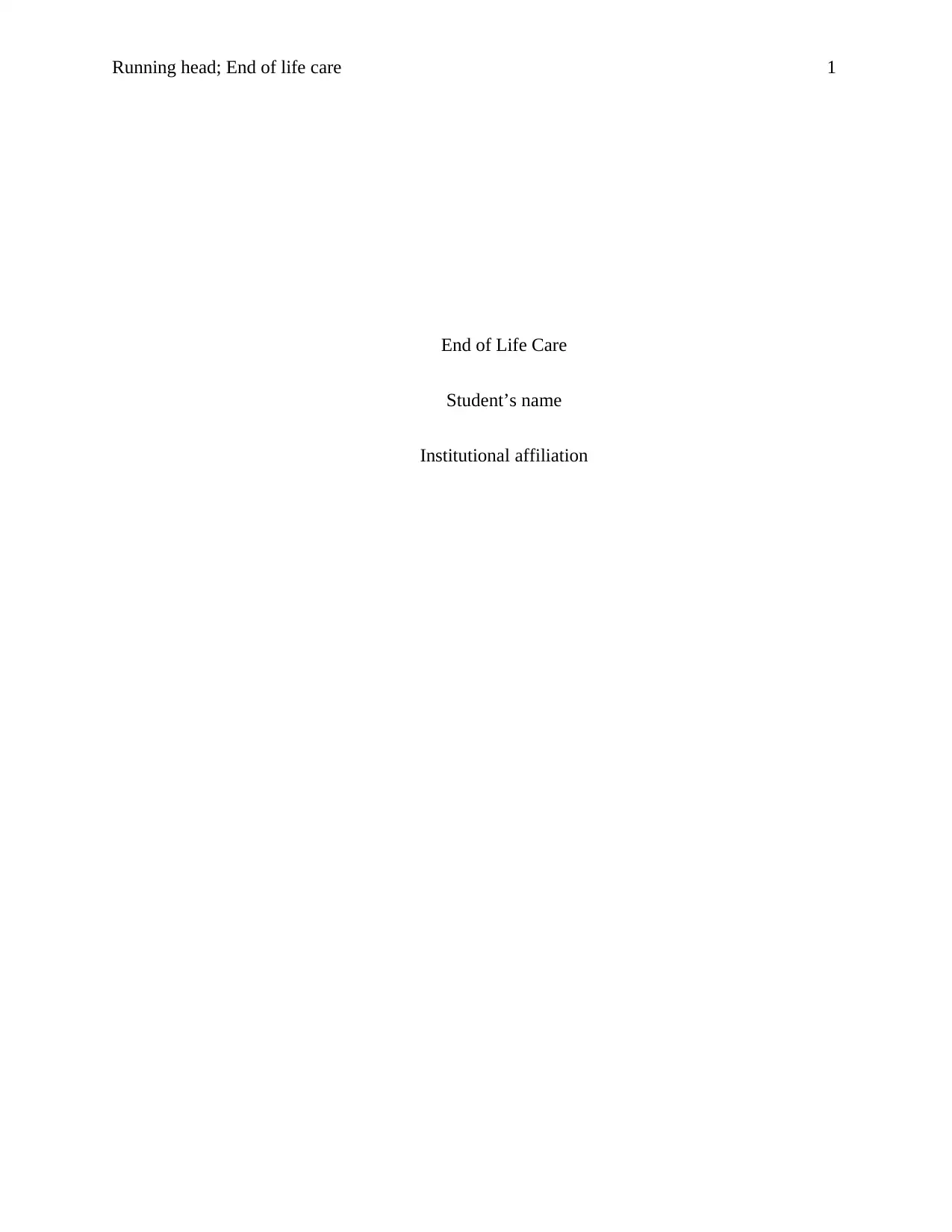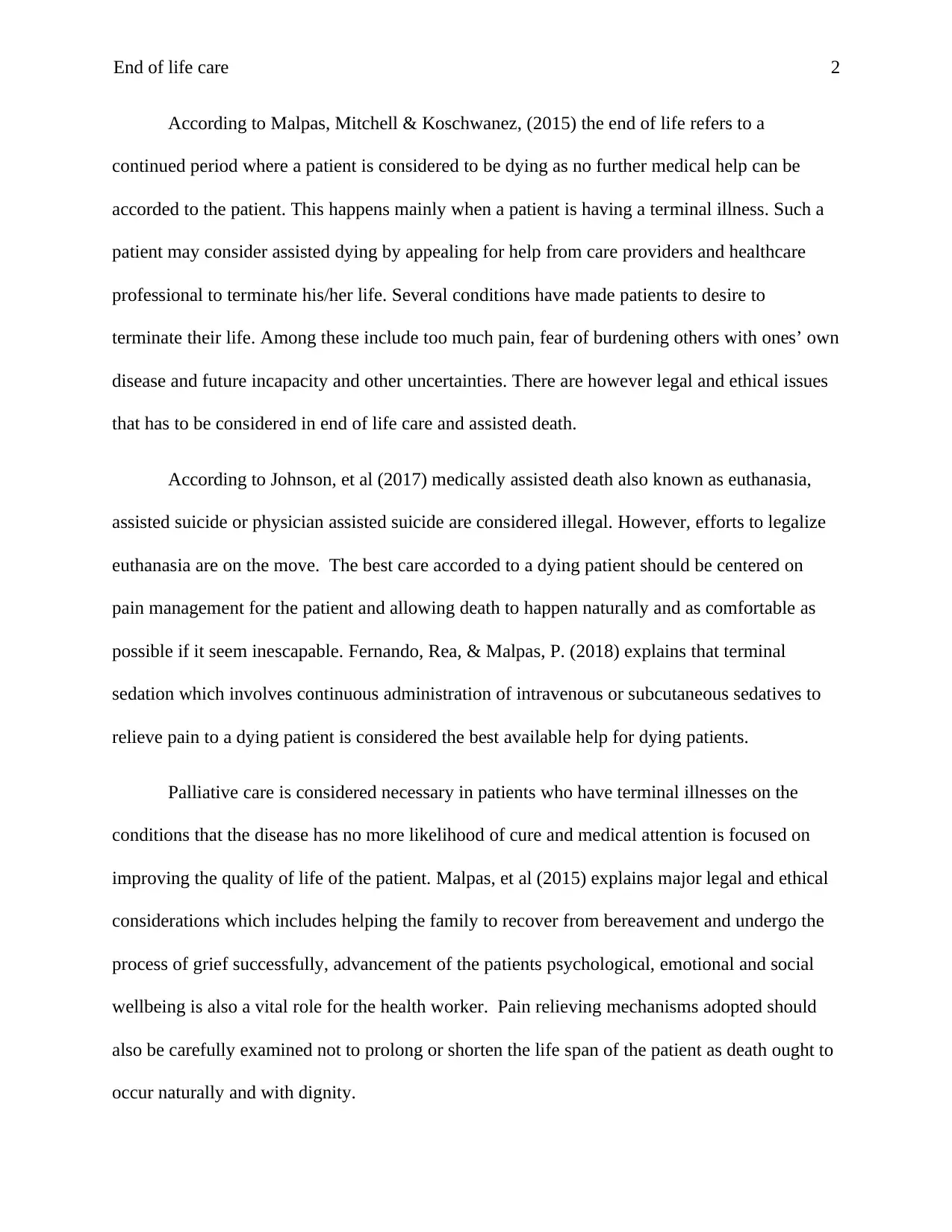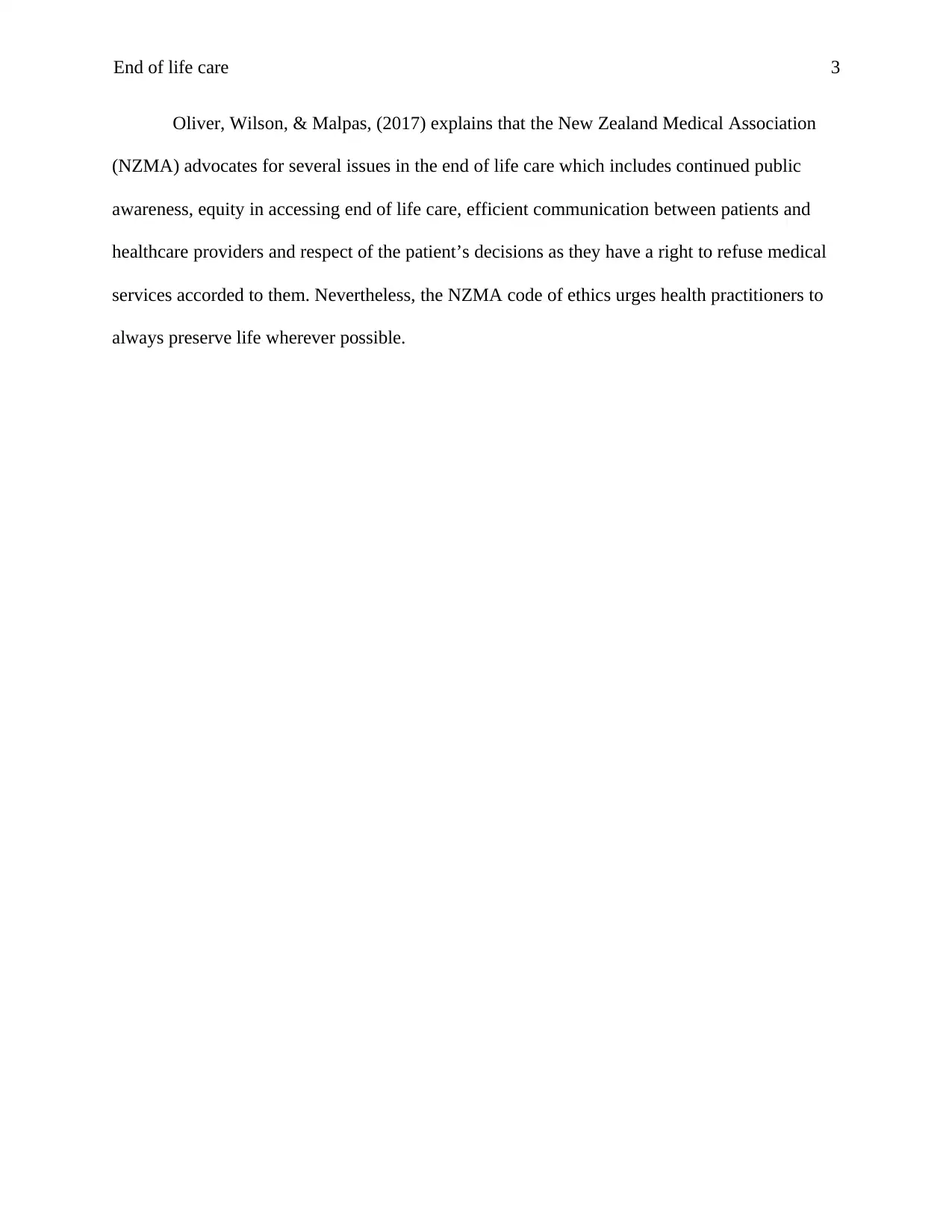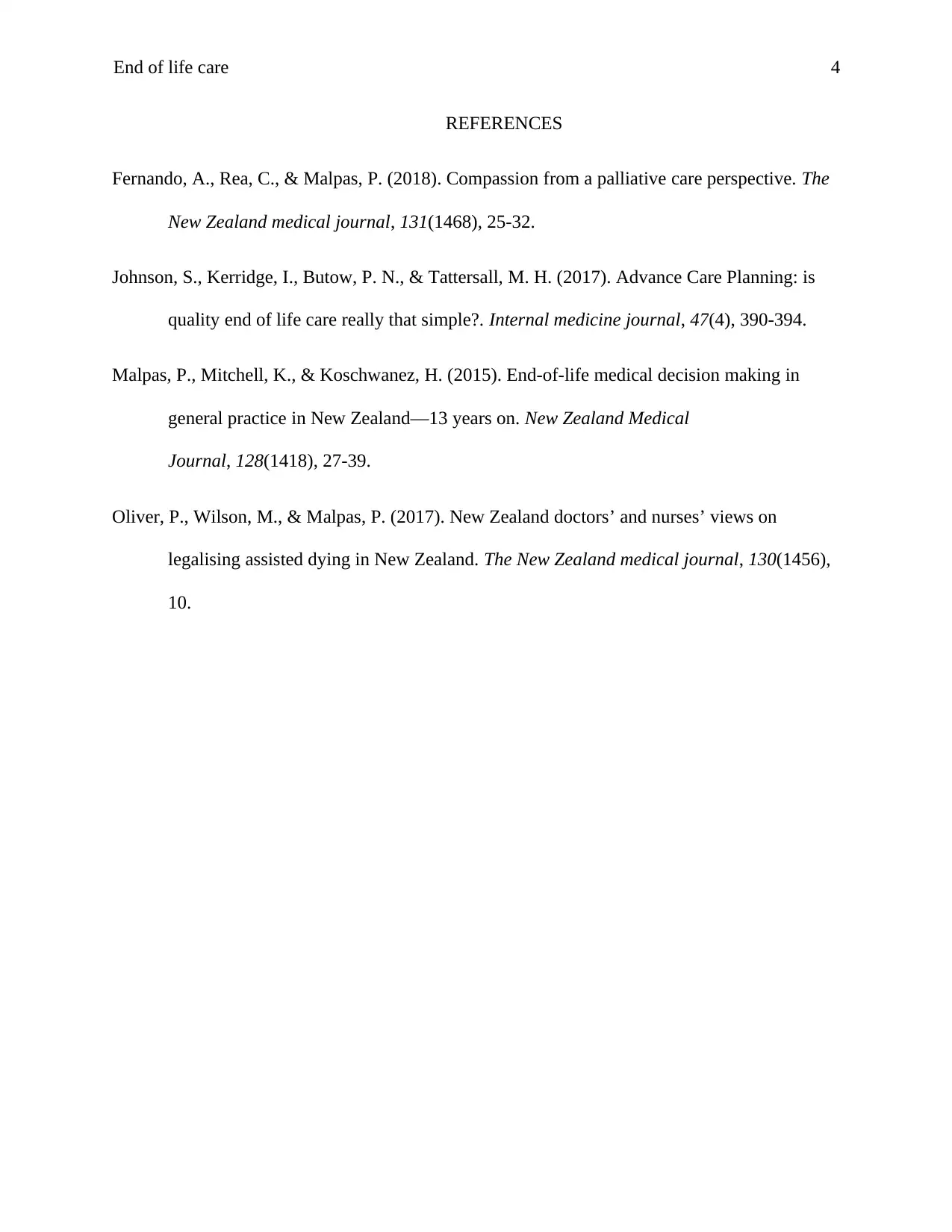Examining Ethical and Legal Issues in End-of-Life Care Practices
VerifiedAdded on 2023/06/14
|4
|653
|331
Essay
AI Summary
This essay examines the ethical and legal considerations surrounding end-of-life care, focusing on issues such as assisted dying, euthanasia, and palliative care. It discusses the complexities of balancing patient autonomy with legal restrictions and ethical obligations of healthcare providers. The essay highlights the importance of pain management, respecting patient decisions, and providing psychological and emotional support to both patients and their families. It also references the New Zealand Medical Association's stance on end-of-life care, which advocates for public awareness, equitable access, and effective communication while upholding the preservation of life. Terminal sedation and palliative care are presented as viable options for managing pain and improving the quality of life for terminally ill patients, emphasizing the need for a dignified and natural death.
1 out of 4











![[object Object]](/_next/static/media/star-bottom.7253800d.svg)